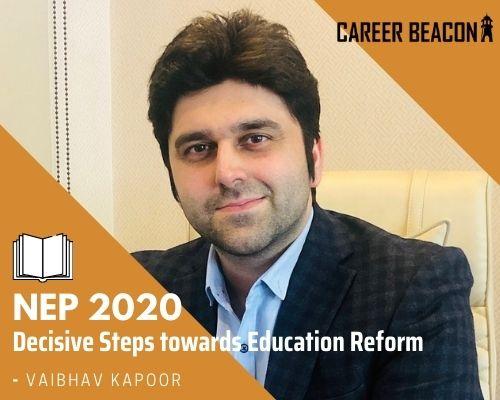
NEP 2020- Decisive Steps towards Education Reform
Progression calls for continuous endeavour by one and all to incorporate the necessary changes. The NEP 2020 marks the most remarkable transformation in the history of India’s education system. The NEP policy aims to metamorphose India into a vibrant knowledge society; placing both school and college education at a more holistic, flexible, multidisciplinary platform and catering to the 21st Century skills, to bring out the inherent capabilities of every student. Though the policy is at a preliminary stage at the present scenario, the achievable objectives it lays are traversing beyond literacy, numeracy, and essential skill-sets and establishing a professional society. With ultimate time-period for implementing this new policy being estimated to another five years, it gives rise to a callosum of thoughts, opinions and contemplations.
On the one hand, there is praise for the 5+3+3+4 system of education, vocational training, incorporation of technology and 21st Century skills; at the same time, there is doubt creeping, regarding the actual implementation of all these objectives. The Kothari Commission (1964-1966) talked about bringing forth a common school system concept. The idea was hugely celebrated but never got implemented. Similar was the fate of ‘The National Policy of Education, 1986’, which introduced non-formal education for the disadvantaged children, but ultimately got accused of promoting child labour. It is forecasted that the new structure intends to bring into the fold the already existing playschools within the ambit of ‘formal education’ with its 5+3+3+4 system. There will be more emphasis on vocational training, learning by doing and critical thinking. NEP 2020 will focus on mending the loopholes of the overall school curriculum for the students, which has been existing since years, through its reformed Board examinations, reduction in the general syllabus to retain core essentials and thrust on experiential learning. A variety of subject combinations will be at the students’ disposal: the college and university level reforms, the open-arm invitation to top foreign colleges to have India centres.
Keeping our face towards the sunshine, we hope that finally, India will be able to do away with its old layered education system. The benefits of educational renaissance will sync with our stratified social fabric.
Author Vaibhav Kapoor is Principal Ajanta Public School Gurgaon


